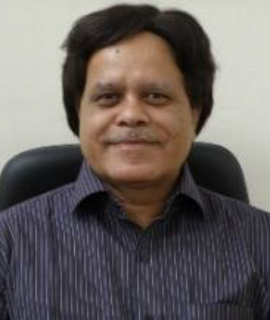Title : Bacterial Diversity and Biocatalytic Potential of Sea Water and Related Saline Habitats: A Perspective from the Gujarat Coast, India
Abstract:
The microorganisms of the saline habitats require dual extremities of alkaline pH and high salt concentrations. For the last three decades, we have investigated bacteria, actinobacteria and archaea from the sea water and related saline habitats of coastal Gujarat, India. Our studies focused on the cultivation, distribution, diversity, biochemical and metabolic traits, enzyme secretion, characteristics and expression of key enzymes. The antibiotic resistance is an effective strategy for the microbial survival and dominance in different seasons. While the production of the hydrolytic enzymes and ability to utilize variety of hydrocarbons projects their biotechnological and bioremediation avenues. The diversity was assessed by the conventional, phylogenetic and other molecular approaches. The phenograms based on the morphological and metabolic traits and the 16S rRNA genes based phylograms were useful in identification of the organisms and assessment of the diversity. The comparison of both approaches reflected significant seasonal variations of the actinobacterial communities, despite limited phylogenetic differences. The impact of the abiotic factors on the bacterial diversity was analysed by the Canonical Correspondence Analysis (CCA). The cultivable diversity was compared with the metagenomic-generated dynamics of the microbial population. The sequence and function-based metagenomics provided detailed account on the diversity, phylogeny and putative physiological functions in the saline habitats. The dominant phylum were Bacteroidetes, Proteobacteria and Gemmatimona. The actinobacterial genera identified through metagenomics were substantially greater than cultivable genera. The genetic diversity of protease genes was assessed from the metagenome and cultivable bacteria using degenerative primers. The phylogenetic analysis of the protease genes reflected the novelty of the proteases. Further, the factors affecting the heterologous gene expression were investigated for the induction and solubility of the expressed protease. Gene profiling, cloning and expression of potential enzymatic genes paved the way to elucidate the structure and function relationship and prospects of applications.
What will audience learn from your presentation?
• Diversity, Phylogeny & Biocatalytic potential of halophilic/haloalkaliphilic microorganisms from saline habitats: Approaches & Analysis
• Cloning, expression and characterization of Recombinant enzymes from haloalkaliphilic bacteria
• Metagenomics of Extreme Environment: Diversity and search of novel genes


